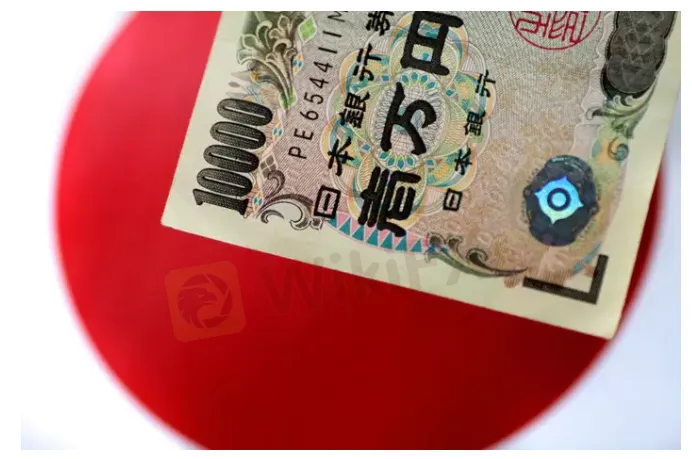简体中文
繁體中文
English
Pусский
日本語
ภาษาไทย
Tiếng Việt
Bahasa Indonesia
Español
हिन्दी
Filippiiniläinen
Français
Deutsch
Português
Türkçe
한국어
العربية
Japan has little to cheer on weak yen, says former currency diplomat Furusawa
Abstract:Japan has little to cheer about a weak yen, which reflects its deteriorating economic fundamentals and trade deficit, the countrys former top currency diplomat Mitsuhiro Furusawa said.

But monetary policy is not the right tool to curb yen falls, Furusawa said, brushing aside speculation that recent yen declines might prompt the central bank to raise interest rates.
“It‘s not good if the value of a country’s currency keeps sliding,” Furusawa told Reuters on Thursday, describing the weak-yen trend as reflecting Japans waning competitiveness.
“Responding to a weak yen with monetary policy isnt right,” he said, adding that the Bank of Japan will keep interest rates ultra-low to ensure inflation sustainably hits its 2% target.
Furusawa oversaw Japan‘s currency policy in 2013-2014, when BOJ Governor Haruhiko Kuroda’s “bazooka” stimulus pushed down the yen and bolstered shares. His remarks point to changes in how Tokyo policymakers see a weak yen – once welcomed as giving Japans export-reliant economy a boost.
The yens real, effective exchange rate – an indicator that captures the international competitiveness of a currency – has slid to less than half the peak level of 150 hit in 1995.
The Japanese currency has lost around 8% against the dollar in March, dropping to a six-year low below 125 on Monday.
Some market players see 125 yen to the dollar as a level that raises alarm among Japanese authorities, as a previous drop to that level triggered verbal warnings by BOJs Kuroda.
But Furusawa said the speed of yen moves, rather than the currencys level, were more important for policymakers in deciding whether to intervene in the market.
The dollars spike to 125 yen on Monday was “quite big,” which is why incumbent currency diplomat Masato Kanda toned up his warning the following day, Furusawa said.
“Its meaningless to set a certain line-in-the-sand for currency levels,” said Furusawa, who retains close contact with overseas and incumbent Japanese policymakers.
After his stint at Japan‘s finance minister, Furusawa served as deputy managing director of the International Monetary Fund until 2021. He is currently president of the Institute for Global Financial Affairs at Japan’s megabank SMBC.

Disclaimer:
The views in this article only represent the author's personal views, and do not constitute investment advice on this platform. This platform does not guarantee the accuracy, completeness and timeliness of the information in the article, and will not be liable for any loss caused by the use of or reliance on the information in the article.
Read more

Forex Trading Mastery: The Ultimate Winning Formula
The foreign exchange market is inherently volatile, with its sharp fluctuations driven not only by changes in the global economic landscape but also by large-scale speculative capital and the influence of major market players, further intensifying its instability.

Gold Surge News: Central Banks Expand Gold Reserves—Will Prices Rise?
Central banks have purchased over 1,000 tons of gold annually for three consecutive years, and 2024 is no exception. However, the key question remains: as demand for gold continues to rise, will its price keep increasing?

FBK Markets Review 2025: Live & Demo Accounts, Withdrawals to Explore
FBK Markets, a young South African forex broker, targets both beginners and experienced traders within this region. This broker shines at its low minimum deposit required, 100% deposit bonus, and flexible account options, yet we cannot consider it reliable as it operates without any regulation. Furthermore, it features an approximately 70% withdrawal failure rate.

5 Arrested in the TriumphFX Investment Scam Investigation
Malaysian authorities have intensified their investigation into the TriumphFX foreign exchange investment scam, resulting in the arrest of five individuals linked to the fraudulent scheme.
WikiFX Broker
Latest News
Is TUOTENDA a cryptocurrency scam primarily targeting men over the age of 50?
Canada to Enforce Retaliatory Tariffs if U.S. Duties Persist
Unbelievable! Is the Yen Really Gaining Strength?
FINMA Opens Bankruptcy Proceedings
$13M Pig Butchering Scam: Three Arrested for Money Laundering
FCA Issues Warning Against 14 Unregistered Financial Firms
Crypto Scam Exposed: 3 Arrested for Defrauding Investors
Nifty 50 Index Futures Now Available at Interactive Brokers
Grand Unveiling: The Core Reasons Behind the Yen’s Rise
Ethereum’s Shock Drop: What’s The Real Reason?
Currency Calculator






